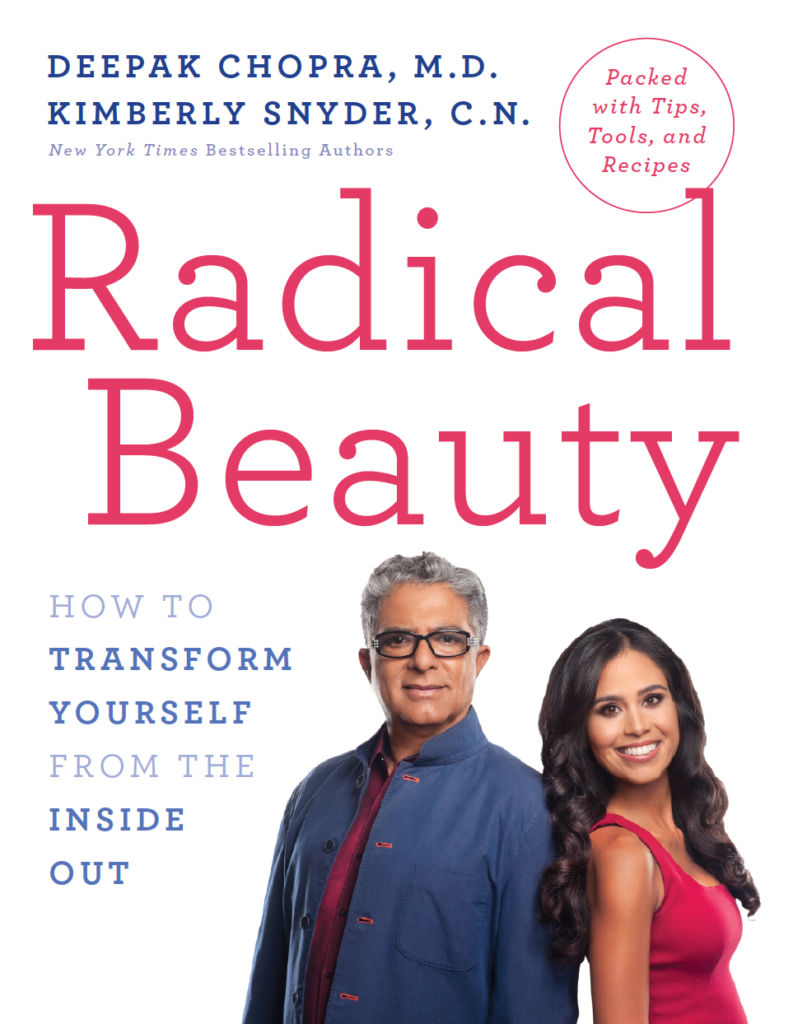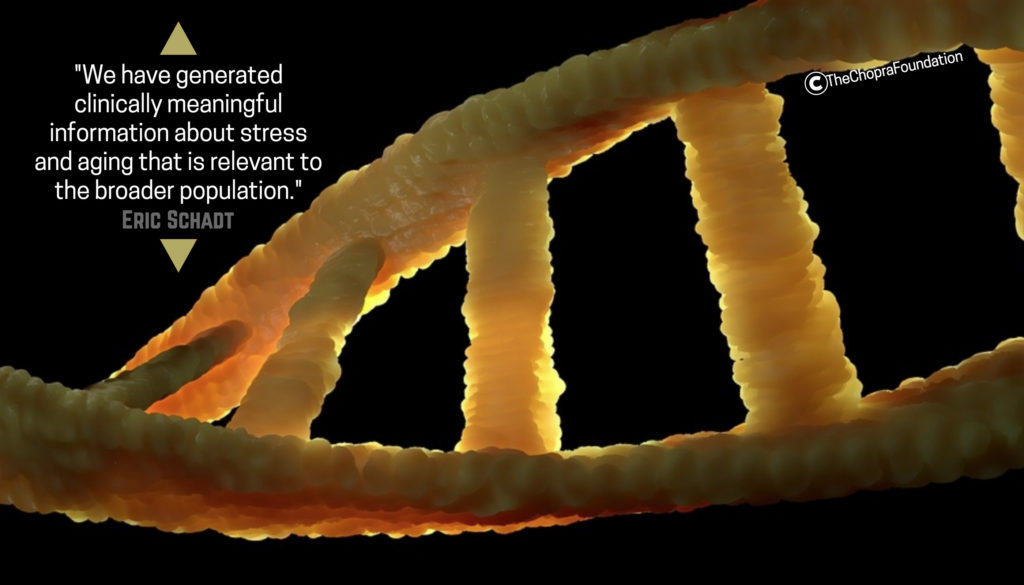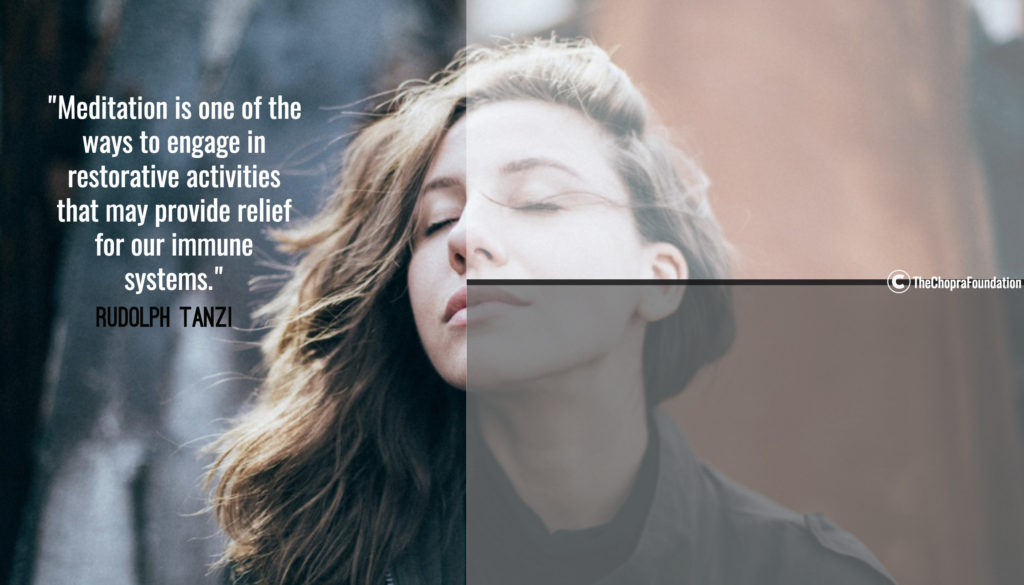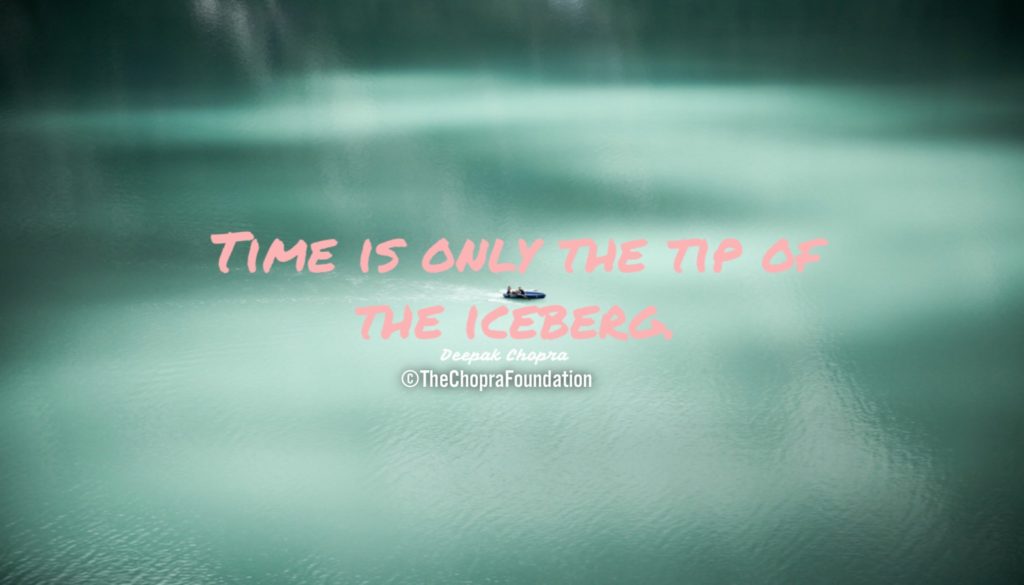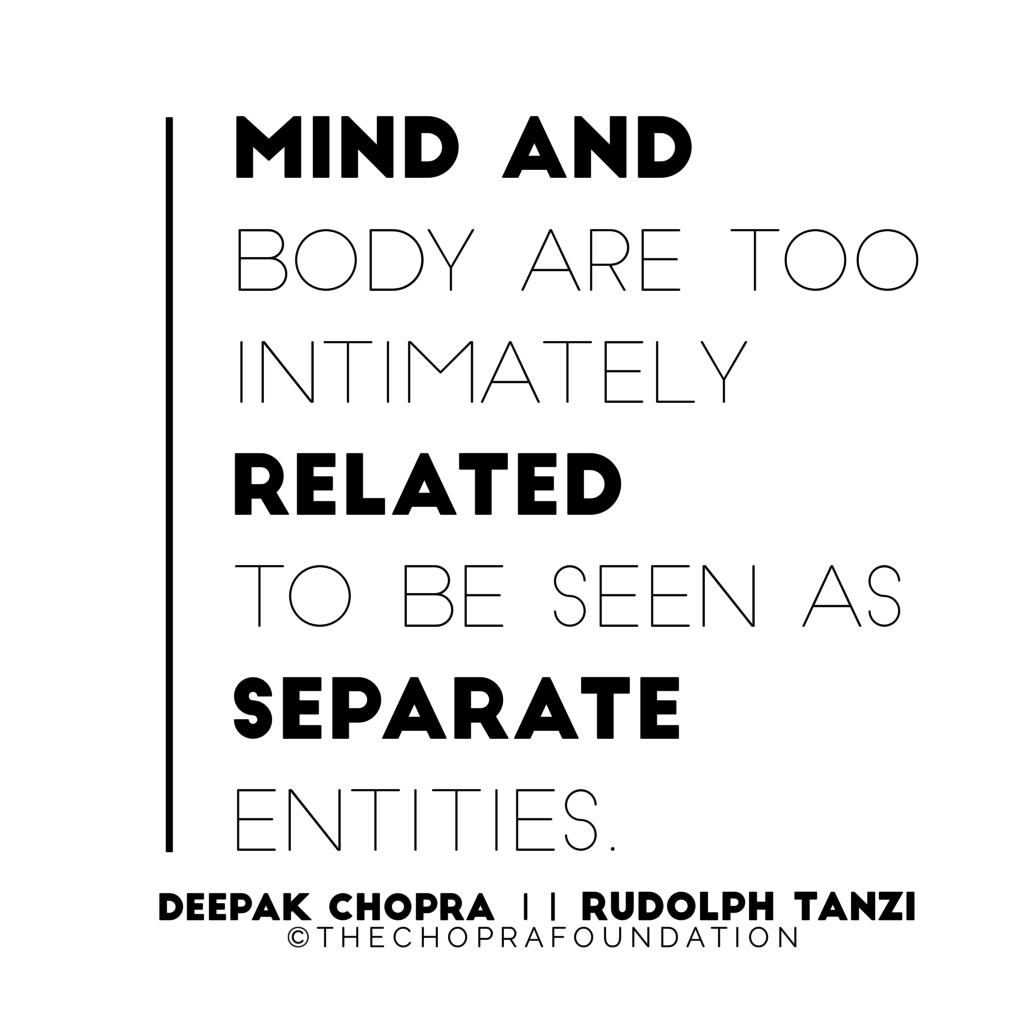By Deepak Chopra, MD and Kimberly Snyder, CN
Society has allowed our notion of beauty to go awry. Countless women–and not just women–look in the mirror and see a reflection of inadequacy. They have fallen short of an ideal that was defective to begin with. But conditioned since childhood to equate a “perfect” body with being beautiful, they blame themselves for being the defective one.
The situation is filled with cruel ironies. Children are naturally beautiful until they are taught to stop thinking that way and to start measuring themselves by an unnatural standard. Even the small percentage of women who are super-model thin suffer anxiety over gaining a pound. The first gray hair and wrinkles create panic. The worship of perfection belies the epidemic of obesity that constitutes reality for millions.
The problem has been diagnosed many times without a workable solution. One study after another has proven without a doubt that fad diets don’t work; in fact, the chances of becoming obese are higher for chronic dieters. Billions of dollars spent on cosmetics and plastic surgery have done nothing to solve a prevailing sense of not being beautiful enough. All of this points to a single underlying issue: a woman’s sense of lack.
In our view, this is the issue that must be addressed head on. If a person looks in the mirror and doesn’t see someone who is lacking, the way is open for seeing someone who is beautiful. A radical turn-around in social measures of beauty is necessary, and yet the good news is that such a turn-around is accessible by everyone. Let’s look at a few facts about the mind-body system that support our optimism. 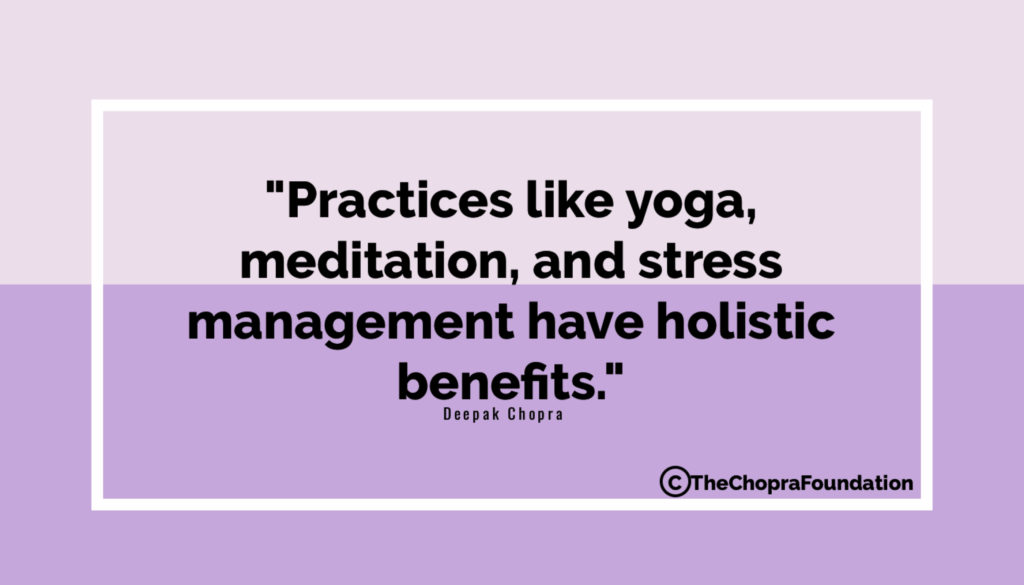
1. Mind and body are connected through a network of messaging that alerts every cell in the body to our thoughts, moods, beliefs, hopes, fears, and expectations.
2. As a result, the body is amazingly sensitive to shifts in our mental state.
3. By using a simple measure–the percentage of positive input the mind-body system receives–the messaging to every cell can be improved and even optimized.
4. Working from the inside out, practices like yoga, meditation, and stress management have holistic benefits.
These facts have far-reaching implications for beauty. As a woman gains more positivity about herself, grounded in lifestyle changes in any area, the feedback loop that connects mind and body gets stronger. The person’s increased wellbeing increases, and with each step in this direction, a shift occurs in the brain, favoring even more positivity and less negativity. So what do we mean by positive input? In our holistic approach to beauty, which we call Radical Beauty, the range of possibilities is very broad:
* Pure food, water, and air.
* Avoiding physical and emotional toxins.
* Unprocessed, natural, organic food.
* Nurturing relationships.
* Good sleep.
* Exercise that favors lightness, balance, flexibility, and gracefulness.
* Attitudes of appreciation and gratitude.
* A higher vision of life.
* Service to others.
* Satisfying, meaningful work.
* Mediation and yoga.
* Increased self-esteem.
* The sense of being in control.
* Feeling safe.
* Feeling as if you belong.
* Daily close contact with family and friends.
* Generosity of self through acts of giving.
* Being loved and loving in return.
This is just a start on the holistic path, and every aspect comes naturally once we drop our unrealistic ideals and realize how fulfilling reality can be instead. Beauty should be measured by these things, and yet we aren’t shying away from or giving up on traditional beauty, which still has a place. The skin, for example, is the body’s largest organ and secrets more endocrine hormones than the endocrine glands. These hormones are carriers and signals of emotion. therefore, in the mind-body feedback loop, a glowing mood gets translated into glowing skin.
In the next post we’ll give more details about how our radical revision of beauty works, in what we call Radical Beauty. Here we wanted to open the discussion on a topic that everyone is involved in, leading to life-enhancing or self-destructive results. The purpose of beauty should always be life-enhancing, and we believe it can be, in very practical terms.
Deepak Chopra MD, FACP, founder of The Chopra Foundation and co-founder of The Chopra Center for Wellbeing, is a world-renowned pioneer in integrative medicine and personal transformation, and is Board Certified in Internal Medicine, Endocrinology and Metabolism. He is a Fellow of the American College of Physicians and a member of the American Association of Clinical Endocrinologists. The World Post and The Huffington Post global internet survey ranked Chopra #17 influential thinker in the world and #1 in Medicine. Chopra is the author of more than 80 books translated into over 43 languages, including numerous New York Times bestsellers. His latest books are Super Genes co-authored with Rudolph Tanzi, PhD and Quantum Healing (Revised and Updated): Exploring the Frontiers of Mind/Body Medicine. www.deepakchopra.com
KIMBERLY SNYDER, C.N., is a nutritionist and the New York Times bestselling author of the Beauty Detox book series. Snyder has appeared as a nutrition and beauty expert on Good Morning America, Dr. Oz, Ellen, Access Hollywood, The Doctors, and Today and has been featured in the New York Times, the Wall Street Journal, Vogue, Vanity Fair, Elle, InStyle, as well as many others. The go-to nutritionist for many of the entertainment industry’s top performers, Snyder is also the creator of Glow Bio, an organic juice, smoothie and cleanse company. She hosts the top-rated podcast Beauty Inside Out on iTunes, and her blog, website, and products have spread the Beauty Detox movement to more than 150 countries. For more information, visit KimberlySnyder.com and RadicalBeauty.com.

